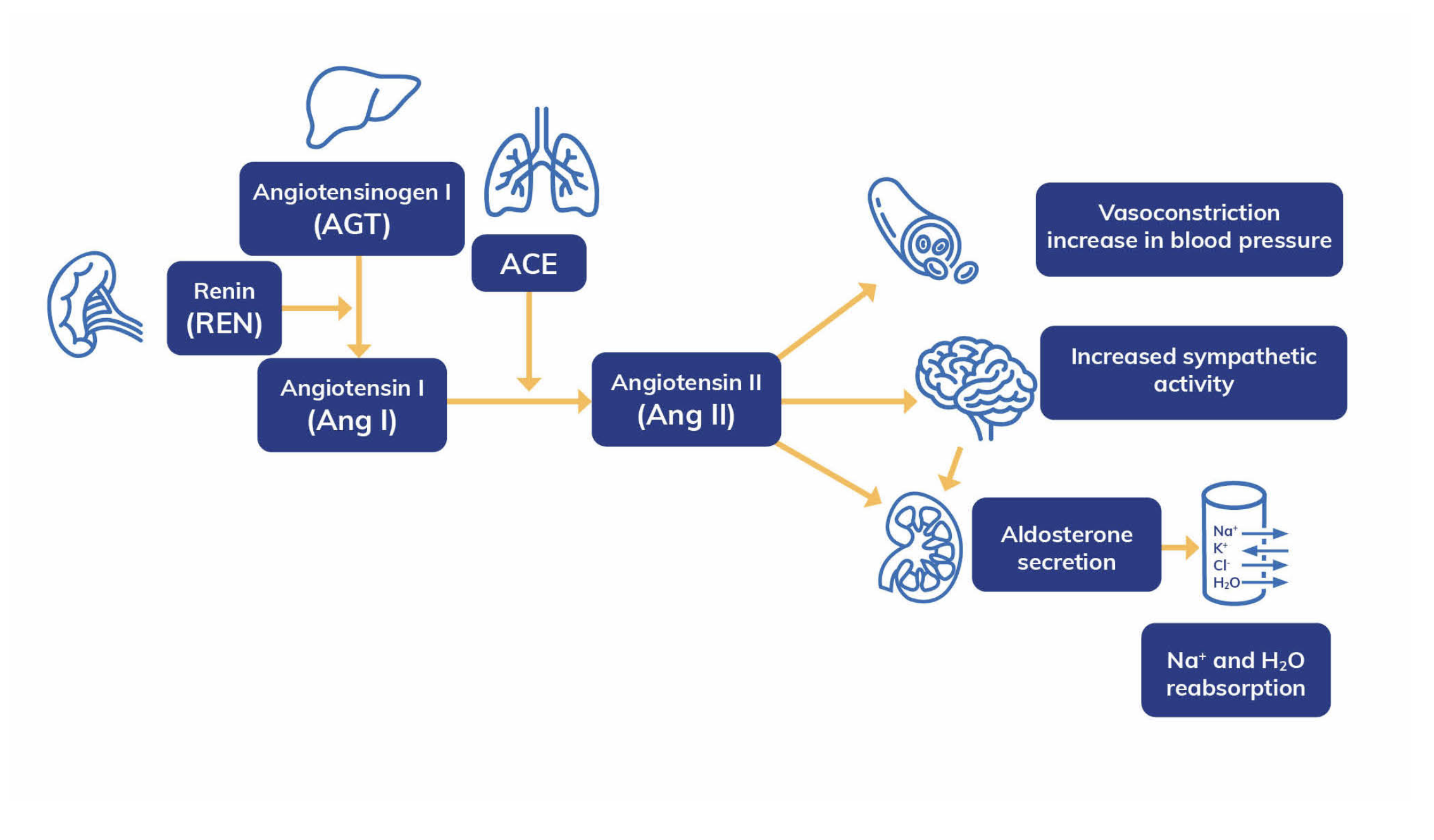
A high salt intake has been associated with increased blood pressure and poor heart health.
It’s thought that our ancestors evolved in an environment with a low salt intake. Because of this, humans have developed efficient biological processes to retain salt in our body. But in today’s world, we have an abundance of salt in our food, particularly processed foods.
Generally speaking, the term salt, refers to table salt. Table salt is refined and processed to remove other minerals and impurities. Table salt usually contains anti-caking agents such as sodium ferrocyanide (E535) and on average contains 97-99% sodium chloride. Therefore, the term “salt” generally means sodium chloride.
Salt is associated with high blood pressure because sodium attracts water. A high-salt diet draws water into the bloodstream, increasing blood volume and the pressure in your blood vessels. Long-term high blood pressure puts pressure on organs including the heart, kidneys, brain, and eyes. Over time if blood pressure is not managed, it can cause negative effects on blood vessels and organs.
However, not everyone responds to salt in the same way. Some people can consume a high salt diet and they will not develop high blood pressure.
What is salt sensitivity and salt resistance?
Put simply, salt sensitivity describes an increase in blood pressure in response to sodium intake. Salt resistance describes someone who has a high-salt diet and does not develop high blood pressure.
Of course, salt is not the only factor that causes high blood pressure.
Ongoing high blood pressure and salt sensitivity are caused by an interaction between our genes and lifestyle habits including a high salt diet and sedentary behaviour. Almost half of the US population has chronic high blood pressure, salt sensitivity, or both.1 In New Zealand, around 16% of men and 17.4% of women showed high blood pressure in 2021.8
Multiple gene variants have been associated with salt sensitivity and high blood pressure. In particular, common variations within the genes that code for AGT (angiotensinogen), and ACE (angiotensin converting enzyme) have been identified. These genes play a significant role in the renin-angiotensin system, this is what regulates your blood pressure. This system includes your kidneys, heart, blood vessels, liver, lungs and central nervous system that includes the brain, as shown in Figure 1.

Figure 1: Genetic variations within AGT and ACE stimulate vasoconstriction, sympathetic activity along with salt and water absorption resulting in increased blood pressure
Genetics and salt sensitivity
A common gene variation within AGT (classified as rs699 or M235T) has been strongly associated with increased risk for high blood pressure, and two studies have reported a link with salt sensitivity.2,3 A trial showed that people who inherit the rs699 variant have a greater reduction in blood pressure following a low-sodium diet, compared to those who do not have the AGT gene variant.3
Interestingly, the rs699 variation is inherited in linkage with AGT rs5051, -6 G > A. Linkage means the variations are usually inherited together. The rs5051 A variant is also associated with a greater reduction in blood pressure after decreasing sodium. These results suggest that people who inherit these genetic variations within AGT are more likely to experience salt sensitivity and may benefit from reducing salt in their diet to better manage blood pressure.4
The most common variation within the ACE gene is not a single DNA base change, which is the most common variation and often called a SNP (single nucleotide polymorphism). In this case the ACE gene has an insertion or a deletion, meaning an extra chunk of DNA is added (insertion) into the gene or it is missing (deletion). Regarding DNA testing, the ACE insertion or deletion is identified by a number of SNPs including rs4340.5
The ACE deletion has been associated with increased ACE levels and high blood pressure, especially in those with a high sodium diet.6 Despite there being convincing evidence linking high blood pressure with the ACE deletion, studies on salt sensitivity have been inconsistent. Large intervention trials are needed before any strong conclusions can be made.
Are you salt sensitive?
If you have done genetic testing, you can check your results to determine if you have inherited genes that can increase your susceptibility to high blood pressure and possibly salt sensitivity. Furthermore, if you have a blood pressure monitor you can do an assessment at home by consuming a low sodium diet for about a week, then increase your salt intake for 4 days. If your blood pressure increases by more than 5% after eating the higher salt diet, you are considered salt sensitive.
If you have inherited variations within AGT or ACE, or you find that salt does increase your blood pressure, reducing sodium along with increasing other minerals such as potassium, magnesium and calcium can help keep blood pressure levels within a healthy range. Also, by focusing on intaking enough fruits and vegetables instead of packaged foods can support healthy immune function and help to maintain a healthy weight. In turn these can improve long term cardiovascular health.7

About Dr Denise Furness, PhD, BSc (Hons), RNutr +
Geneticist & Nutritionist, CSO and Founder, Your Genes & Nutrition, Sunshine Coast, Australia
Dr Denise Furness, PhD is a molecular geneticist and registered nutritionist. She is a pioneer in the field of nutrigenomics and epigenetics with 20 years’ experience in the area. She began her career as a research scientist focusing on folate nutrigenomics, methylation, and DNA damage. She has published her work in peer reviewed journals and has won numerous awards for her research and conference presentations. In 2012 she founded Your Genes and Nutrition and began applying her knowledge in private practice.
+ Dr Denise Furness is a medical consultant and retained advisor to Pure Encapsulations.
- Felder et al.. Curr Opin Nephrol Hypertens. 2013
- Johnson et al. Blood pressure is linked to salt intake and modulated by the angiotensinogen gene in normotensive and hypertensive elderly subjects. J Hypertens. 2001
- Hunt et al. Enhanced blood pressure response to mild sodium reduction in subjects with the 235T variant of the angiotensinogen gene. Am J Hypertens. 1999
- Hunt et al.. Hypertension. 1998
- Lupoli et al. Dietary Salt Intake, Blood Pressure, and Genes. Curr Nutr. 2013
- van der Kleij et al. Enhanced responses of blood pressure, renal function, and aldosterone to angiotensin I in the DD genotype are blunted by low sodium intake. J Am Soc Nephrol. 2002.
- Pem D, Jeewon R. Fruit and Vegetable Intake: Benefits and Progress of Nutrition Education Interventions- Narrative Review Article. Iran J Public Health. 2015 Oct;44(10):1309-21. PMID: 26576343; PMCID: PMC4644575.
Statista 2021, New Zealand share of adults with high blood pressure, Statista, viewed 2 August 2023, <https://www.statista.com/statistics/782657/new-zealand-share-of-adults-with-high-blood-pressure-by-gender/>
Share:
Related Posts

Benefits of Creatine in Perimenopause and Menopause
Written by Maura MacDonald, MS, RD, CSSD | 2025 As we age, the notion is that we will inevitably become weaker. Not as mobile as

Goodbye Pie Chart, Hello Phase 1 Sliders
Written by Allison Smith, ND | 2025 As we usher in a new era of DUTCH testing which leaves behind the concept of the three-way

Introducing the DUTCH Dozen
Written by Kelly Ruef, ND | 2025 Hormone testing can be complex, which is why Precision Analytical developed the DUTCH Dozen, an interpretive framework that

DUTCH Report Enhancements
Written by Hilary Miller, ND | 2025 Precision Analytical have released the newest version of the DUTCH Test. This is the report’s most significant update

Gallbladder Health 101: What It Does and How to Keep It Working Well
Written by Ashley Palmer & Pooja Mahtani | 2025 The gallbladder may not get much attention compared to the gut, but it plays a central

